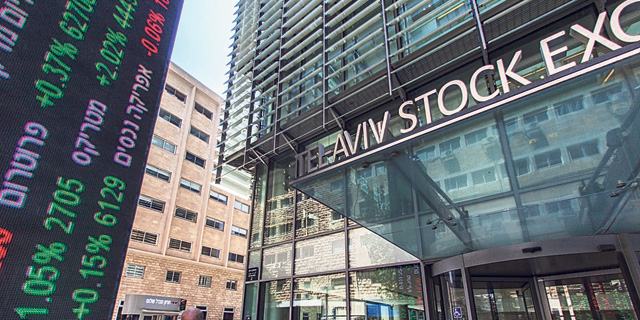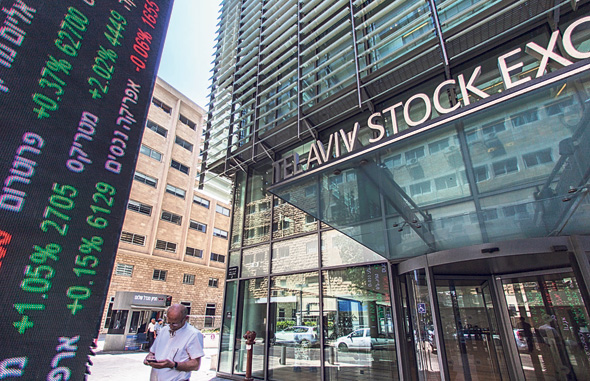
Analysis
Tech startups with little more than a dream are flooding the Tel Aviv Stock Exchange
Easy access to capital has many companies going public without any revenues to speak of
Hezi Sternlicht | 11:07, 15.02.21
The pursuit of technological dreams is flooding the Tel Aviv Stock Exchange with high-risk companies. Recent months have witnessed a deluge of young tech companies offering big dreams, but little in the way of revenues — and occasionally with a ‘going concern’ warning tacked on to them by the auditors. Out of 21 draft prospectuses currently on the books for investors to pursue, four have a going concern notice, and two more feature auditor warnings to pay attention to.
Yesterday (Sunday) ultra-fast EV charging startup Chakratec joined the trend. The company is run by CEO Boaz Wezer and one of its investors is iArgento, which controls a 14.86% stake in the company. If the name sounds familiar, it’s because it too is currently planning to go public.
Chakratec, similarly to another startup Beyon 3D Ltd., which filed an initial prospectus last week, has no revenues on its books and its financial reports feature a going concern notice. The company concluded 2018 and 2019 with losses of NIS 13.2 million and NIS 10.9 million respectively, with the first half of 2020 ending with a loss of NIS 8.95 million. According to market estimates, it is currently seeking to raise NIS 100 million at a valuation of NIS 400 million.
Four of the six companies that filed draft prospectuses that included a going concern notice or an auditor’s call to attention presented no revenues at all in 2019 and as of the first half of 2020 reports, neither Chakratec, nor Beyon 3D recorded any income. Three of the other companies - Airtouch Solar, ENvizion Medical, and Kvasir Education, all reported relatively low earnings.
These technology companies are chasing grand visions. Airtouch, for example, develops robots to clean solar energy panels, ENvizion develops emergency medical products, Beyon 3D develops technology to make building supplies more affordable, and Kvasir develops tools to improve the productivity of students in the life sciences fields.
The investors are for the time being expressing interest and occasionally excitement as part of the overall market trend that supports tech companies. Since the start of 2021, the TA-35 Index has climbed by 7.37%, but it was beaten out by the TA-Biomed Index, which spiked by 48.4%, the TA Global-BlueTech Index that climbed up 25.8%, and the TA-Tech Elite Index which rose by 18%. The local investors seem envious of the Nasdaq, which in 2020 rose by 44% and by another 9% since the start of 2021. What is behind this wave of dream company IPOs? Firstly, it’s the interest rate being at zero. All over the world, low interest rates are boosting risky assets, and primarily in the stock market. Secondly, it is because of the central bank incentives which are providing markets with a significant push and causing them to disassociate from the real economy. These two factors together make it so that it is the perfect timing for companies of all sorts to go public. And indeed, 2020 was the year that saw the most companies go public since 2007, with lawyers and underwriters currently working on 100 more prospectuses. The third factor is the incredible rise in tech shares, which are the undeniable stars of the current rally. The Nasdaq and S&P 500 indexes, which broke records amid the pandemic, were successful in large part due to the tech stocks and primarily those of the tech giants, Facebook, Amazon, and Google. Their rise creates a halo effect that draws investors to smaller tech companies too, out of a hope that these companies, which for the most part are still developing their technology and as a result don’t have any revenues to speak of, will in time become giants that will also change the world, or at least become extremely profitable. If the pandemic taught the market anything, it’s that the cliche that says, “you can’t time the market” is always true. In March 2020, when the markets crashed, many investors fled the stock market and missed out on the meteoric rises that came in April. Just as you can’t time the market, it is no less difficult to know which of these companies’ dreams will one day come true. Moti Berliner, who is the head of Altshuler Shaham’s research department, said that “while many companies may have added tech to their names, they are not truly tech companies. Some could be considered industrial companies that added a tech element to their product. Clearly, such a high number of IPOs is derived from a sort of hype. There is capital that is seeking investments and the market is providing companies at valuations that many are happy to go public with. Will there be losses? Yes. Is the future return average negative? I can’t say yet,” said Berliner. “There are companies that won’t succeed, but some of them will eventually provide positive returns. Perhaps in a couple of years, when the markets chill a bit, some of the dreams will meet harsh realities, but in a decade, some of these companies will become substantial players. We inspect each investment with a magnifying glass and with a medium-term outlook, and try to select the best of them.”